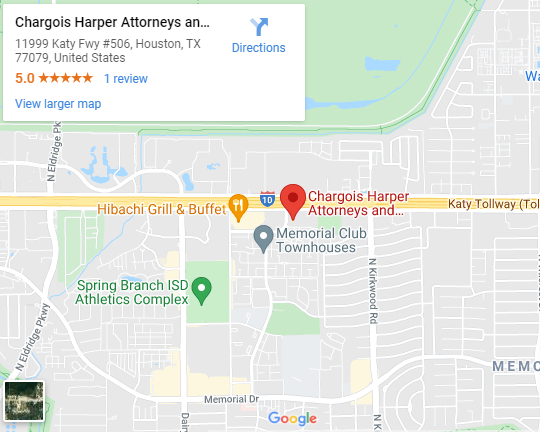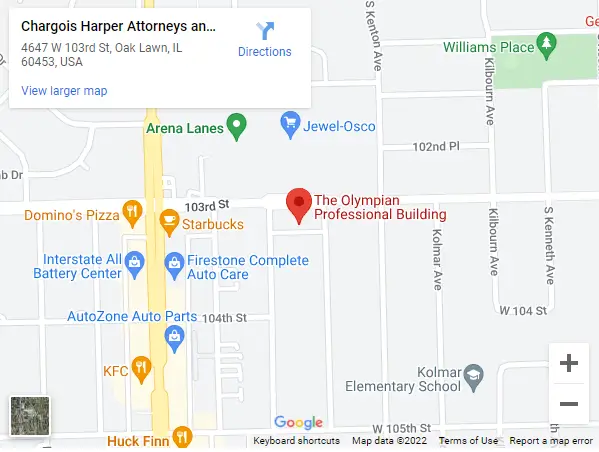Probate Process
What is the Probate Process?
When a loved one passes away, his or her estate often goes through a court-supervised process called probate. It is the legal process by which the will of a deceased person is authenticated and administered, subject to the debts and taxes owed at the time of death, and the property distributed to beneficiaries according to its terms. Probate may also involve the determination of heirs according to laws of intestate succession where an individual dies without a will.
Starting the probate process can be simple, but handling all the steps involved can be complex. It is important to have a credible Texas probate attorney on your side to give you the legal advice and assistance you need to facilitate and expedite the process.
 This article will give you an overview of the Texas probate process and timeline.
This article will give you an overview of the Texas probate process and timeline.
- Step 1: Filing the Will and Application for Probate
- Step 2: Posting
- Step 3: Validating the Will
- Step 4: Appointing an Executor
- Step 5: Cataloging Assets
- Step 6: Identifying Beneficiaries
- Step 7: Notifying Creditors
- Step 8: Resolving Disputes
- Step 9: Distributing Assets
- Step 10: Close the Estate
Step 1: Filing the Will and Application for Probate
The executor or representative of the estate will start the probate process by filing the death certificate with the probate court along with the will. It’s extremely important to start the probate process in the correct jurisdiction. An application for probate must be filed with the proper Texas probate court in the county where the decedent resided.
Step 2: Posting
After filing the will, the clerk of the court will post a notice for approximately two weeks at the courthouse advising all interested parties the will has been filed. During this waiting period, anyone who wishes to contest the will may do so. If no contests are received, the probate court proceeds in opening the administration.
Step 3: Validating the Will
After the waiting period, a Texas probate judge will preside over a probate hearing. During the hearing, the judge will recognize the deceased person’s death, confirm that the individual applying to be an executor is fit to serve, and verify that the decedent died with a valid will. A reliable Houston TX probate lawyer can help you go through this legal process.
Step 4: Appointing an Executor
Once the hearing is completed and all requirements are met, the judge will admit the will to probate and appoint the applicant as the executor of the estate. The judge appoints the executor or personal representative named in the will. If there is no will, the judge will appoint someone, usually a family member, to handle the estate.
The clerk will then issue “letters testamentary” to the executor, which serve as notice to third parties that the executor has authority to act on the estate’s behalf. The personal representative uses these letters to contact banks and attorneys and manage the estate administration.
Step 5: Cataloging Assets
Before the estate can be distributed, it should be inventoried and appraised. Within 90 days of being appointed, the executor or administrator of the estate must catalog all the assets owned by the estate and submit a report to the county clerk. The executor must prepare the following documents:
- inventory
- appraisement
- list of claims
To prepare for probate and asset distribution, the executor of an estate must have a complete understanding of the scope of the decedent’s assets and debts. One of the main tasks of the executors is to produce a detailed inventory of all the property, possessions, and debts of the deceased at the time of his or her death, and a valuation for each. An inventory should include real estate, personal property, bank accounts, and other assets.
Depending on the estate, this may be one of the most time-consuming responsibilities of a personal representative. The complexity of the estate and the likelihood that beneficiaries or creditors will contest the ownership or value of any assets will determine how thorough this inventory needs to be. A knowledgeable Houston probate attorney can answer your questions about this process and assist you every step of the way.
Step 6: Identifying Beneficiaries
A beneficiary is a person entitled to get money or property from the estate of someone who has died. Beneficiaries can include people named in the will or people who are close to the person that has died. As an executor, part of the role is finding and contacting beneficiaries. This includes those who have been directly named in the will and immediate family members.
If a person dies with a valid will, the executor will notify the beneficiaries of the estate. When contacting beneficiaries, provide them with information about what has been left to them in the will. If there is no will, the Texas probate court must determine heirship.
Step 7: Notifying Creditors
A decedent’s estate is responsible for their debts. Typical debts include household expenses, mortgages, medical bills, and funeral expenses. In addition, particularly large estates may also be subject to estate taxes.
Creditors are notified of the decedent’s death by the estate’s executor and allowed to file claims against the estate. The personal representative then pays any valid creditor claims, and disputes or settles creditor claims on behalf of the estate.
Step 8: Resolving Disputes
The process of probate administration often involves parties with conflicting interests. When disputes arise, a resolution may be reached by negotiation, settlement, or litigation. Whether these are disagreements over the valuation of assets, contesting a creditor’s claims to an estate, or contesting the will, all disputes must be settled. A skilled Houston probate lawyer can represent your interests in any estate disputes.
Step 9: Distributing Assets
Once debts are paid and disputes are settled, the remaining property can be distributed. After paying estate debts, taxes, and claims, the executor distributes the remaining assets to the beneficiaries named in the will. If there is no will, then the beneficiaries and heirs receive distributions according to Texas intestacy laws. Since state laws are difficult to navigate, our qualified Houston probate lawyer can help.
Step 10: Close the Estate
To close the estate, the personal representative submits a final accounting to the court. All of the estate’s assets and the revenue earned from them are listed in the final accounting. The report also lists all debts paid in full as well as any distributions made to heirs or beneficiaries. After the court accepts this report, the personal representative is released from their probate responsibilities, and the probate estate is formally closed.
Call Our Experienced Houston Probate Lawyer Now!
Dealing with the grief of losing a loved one is difficult. While you cope with the emotional challenges of someone’s passing, it can be difficult to handle the legal challenges of probate as well. Probate can be a time-consuming and expensive process.
Navigating the probate process requires you to know and follow the rules found in the Texas probate code. Our seasoned Houston probate attorneys at Chargois Harper Attorneys and Counselors at Law will diligently work with you to make the process much more efficient, resulting in time and cost savings. At all stages of the probate process, we will be ready to answer all of your questions and help you make the best decisions. With over 30 years of experience, our probate law firm provides comprehensive probate guidance and legal representation to clients throughout Houston and its surrounding areas.
We are ready to help you at every stage of the probate process. Contact us now and schedule an initial consultation with our competent probate lawyers to ensure your rights are protected.
Visit Us:

You can count on us to protect your interests and resolve your legal concerns in Texas & Illinois.
Facing legal family disputes in Texas?
Dealing with legal disputes can be complicated and overwhelming, especially when it can affect you and your family, but you don't have to face it alone. Whether it's divorce, child support, custody and visitation, or guardianship, our Houston family law attorneys at Chargois Harper have the knowledge, experience, and compassion to help you through your family law case.
Houston Office
11999 Katy Freeway #506
Houston, TX 77079
Illinois Office
4647 W. 103rd Street, Oak Lawn Illinois 60453
Get Help From Our Illinois & Texas Attorneys
All the information on this website – www.chargoisharper.com – is published in good faith and for general information purposes only. Chargois Harper Attorneys and Counselors at Law does not make any warranties about the completeness, reliability and accuracy of this information. Any action you take upon the information you find on this website (Chargois Harper Attorneys and Counselors at Law), is strictly at your own risk. Chargois Harper Attorneys and Counselors at Law will not be liable for any losses and/or damages in connection with the use of our website.
Copyright © 2024 Chargois Harper Attorneys and Counselors at Law - All Rights Reserved. | Powered by Advantage Attorney Marketing & Cloud Solutions




